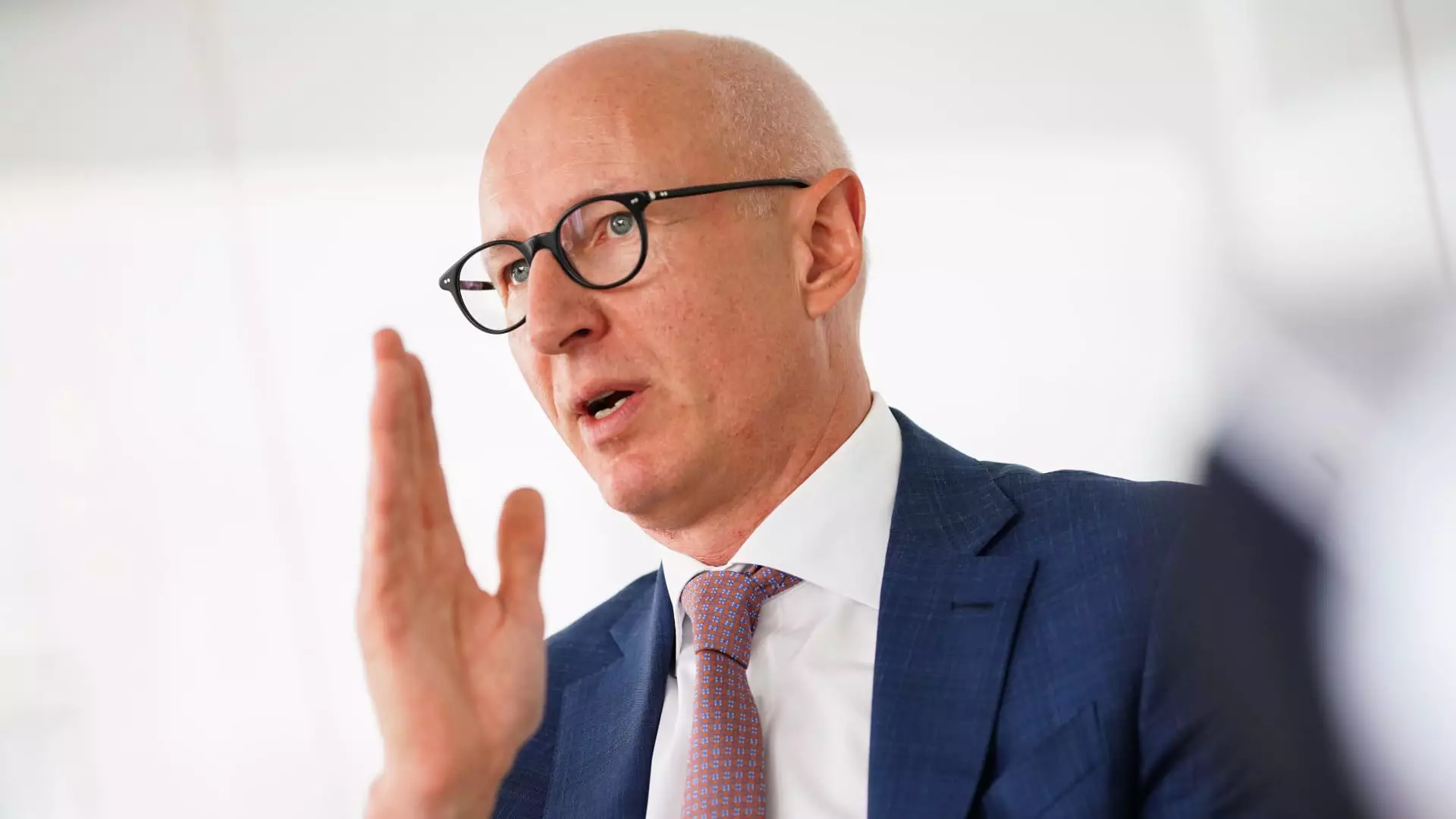As the U.S. grapples with soaring healthcare costs, the focus has shifted to major pharmaceutical companies, with particular emphasis on Novo Nordisk. On Tuesday, CEO Lars Fruergaard Jørgensen is set to testify before the Senate Health, Education, Labor, and Pensions Committee regarding the high prices of two of the company’s flagship products—Wegovy and Ozempic. This hearing comes in the wake of concerns raised by Senator Bernie Sanders, who has spearheaded an investigation into the pricing strategies of the Danish pharmaceutical company. Jørgensen’s testimony is anticipated to address not only the pricing discrepancies between the U.S. and other nations but also the broader implications of these costs on public health and the healthcare system at large.
A significant issue highlighted by Senator Sanders is the vast gulf in drug prices faced by American consumers compared to their counterparts in Europe. The price tag for Ozempic in the U.S. hovers around $969 monthly, while Wegovy reaches nearly $1,350. In stark contrast, patients in certain European countries encounter drastically lower costs—under $100 per month in some instances, with Ozempic priced at just $59 in Germany and Wegovy at $92 in the U.K. This glaring disparity raises important questions about the ethics and sustainability of pharmaceutical pricing in a country where healthcare accessibility is already a major concern.
The revelation that generic pharmaceutical companies claim they could potentially sell a version of Ozempic for less than $100 further complicates the narrative. Currently, there are no generic options available for American consumers, leading to speculation about whether market monopolies are driving up prices at the expense of public health.
The concern surrounding the affordability of Novo Nordisk’s products extends beyond individual consumers. Lawmakers, health experts, and insurers have voiced alarm that the growing demand for weight-loss drugs such as Wegovy and diabetes treatments could place an unsustainable financial burden on the U.S. healthcare system. The Senate Health Committee released a report stating that if half of all Americans were to use these medications, the annual cost could reach $411 billion—this figure superseding the total expenditure on prescription drugs in the country for 2022.
Medicare has already allocated $4.6 billion on Ozempic alone, underscoring the potential for future budget crises if these trends continue. Many insurers are tightening restrictions or altogether eliminating coverage for weight loss medications, adding another layer of complexity to the accessibility of these essential treatments.
The discourse surrounding Novo Nordisk’s pricing is occurring at a crucial time as both political parties and the Biden administration are exploring strategies to mitigate the rising costs of healthcare. Price negotiations for prescription drugs have emerged as a key component of President Biden’s Inflation Reduction Act. Notovably, Ozempic may soon be included in these negotiations, which could lead to recalibrated pricing to favor consumers and Medicare.
The current focus reveals not only a drive toward mitigating drug prices but also a pivotal moment for potential reform in how pharmaceutical pricing is regulated and monitored in the U.S. The fact sheet from the White House highlights that American patients often pay two to three times more for medications than those in other developed countries. This not only secures a financial lifespan of concern but emphasizes the need for regulatory reforms to level the playing field for consumers.
As the Senate hearing approaches, it serves as a vital platform to address the long-standing issues of pharmaceutical pricing that continue to hinder access to necessary treatments for millions of Americans. The complexities of market dynamics, pricing ethics, and healthcare accessibility are colliding, prompting urgent discussions focused on accountability and reform. The outcomes from this hearing could have ripple effects on drug pricing policies, patient health outcomes, and the overall sustainability of the U.S. healthcare system. It remains to be seen if meaningful change will result, but the implications are profound, emphasizing the intersection of health, economics, and ethics in an ever-evolving landscape.


Leave a Reply